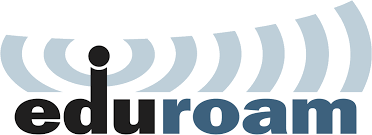Lack of awareness, limited capacity of technical personnel and absence of robust campus WIFI networks have been cited as some of the challenges limiting the roll out of eduroam in many universities and research centers in the UbuntuNet Alliance membership region.
This has been revealed in a recent eduroam baseline survey which UbuntuNet Alliance undertook to appreciate the extent of the deployment of the wireless Internet service within NREN members.
According to the survey, led by the newly recruited Service Portfolio Manager, Nosiku Sikanyika, 7 out of 13 NREN members that participated in the study have eduroam with the remaining 6 yet to start offering the service to their member institutions.
The survey reveals that the NRENs of South Africa (TENET), Kenya (KENET), Mozambique (MoRENet), Tanzania (TERNET), Uganda (RENU), Zambia (ZAMREN) and Zimbabwe (ZIMREN) have eduroam available for their members while those of Democratic Republic of Congo (Eb@le), Malawi (MAREN), Sudan (SudREN), Somalia (SomaliREN), Burundi (BERNET) and Madagascar (iRENALA) do not have the service.
This means that of the 13 NRENs that participated in the survey, 46.2 % have eduroam while 53.8 % of NRENs are without the service. NRENs of Rwanda (RwEdNet) and Ethiopia (EthERNet) did not participate.
The findings also revealed that the 7 NRENs with eduroam have deployed the service to a total of 234 member institutions with ZAMREN, the Zambian NREN, offering the service to the most institutions, 114, followed by TENET of South Africa with 47 member institutions and KENET of Kenya offering the service to 44 institutions.
However, only 5 NRENs; RENU, TENET, ZAMREN, KENET and MoRENet offer eduroam that is accessible to students, staff and visitors while ZIMREN and TERNET restricts eduroam to members of staff only.
Commenting on the survey findings, Sikanyika says the Alliance has devised an action plan aimed at extending the reach of eduroam to NRENs and their member institutions.
“As UbuntuNet Alliance, our wish is to see more NRENs having eduroam and extending the service to their member institutions. We will now embark on various actions aimed at achieving this. Among other things we are going to work on scaling our eduroam servers and work with NRENs in rolling out the service as well as increasing awareness of the service to member institutions. We aim to ensure that we are closing the gap by a significant number by the end of 2021,” said Sikanyika.

